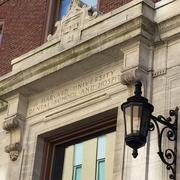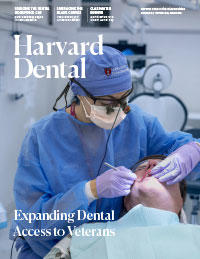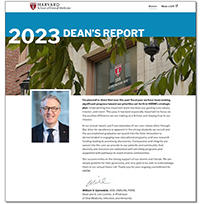
The Commission on Dental Accreditation (CODA), a specialized accrediting body recognized by the United States Department of Education, reviews and evaluates dental education programs on a seven-year cycle. Last year, Harvard School of Dental Medicine’s faculty and administration prepared an extensive self-study for a CODA site visit in October. During the site visit, CODA representatives reviewed HSDM’s predoctoral (DMD) program and advanced graduate education (AGE) programs, and had the opportunity to meet with students, faculty and staff.
At its February 2018 meeting, the Commission on Dental Accreditation (CODA) granted HSDM’s predoctoral program and advanced graduate programs (dental public health, endodontics, oral and maxillofacial pathology, orthodontics and dentofacial orthopedics, periodontics and prosthodontics) the accreditation status of “approval without reporting requirements,” meaning the programs have been granted accreditation without needing to undertake any additional requirements.
“We are extremely pleased that the Commission’s final report supports HSDM’s educational efforts, culture, and curriculum,” said Dean Bruce Donoff. “We are a special community that places an emphasis on fostering excellence and creating dental leaders, and this was recognized. I’d like to thank our faculty, students and staff for their dedication throughout the accreditation process. They truly embody our mission through their work,” he added.
The areas of focus CODA examined at HSDM included Instruction and Curriculum, Biomedical Sciences, Behavioral Sciences, Practice Management and Ethics, Clinical Sciences, Admissions, Facilities and Resources, Student Services and Financial Aid, and Health Services. This was the first accreditation after HSDM implemented the revised Pathways curriculum for its predoctoral program.
“The accreditation self-study process was more meaningful as we were in the midst of a major curriculum reform. Both events provided opportunities for us to redefine the school's competencies and to integrate basic science and clinical dentistry offering longitudinal continuity of cross-disciplinary learning,” Dr. Sang Park, associate dean for Dental Education, said. “It’s important to have this verification of our efforts, and this momentum as we strive to continuously reflect the School's mission and vision.”


